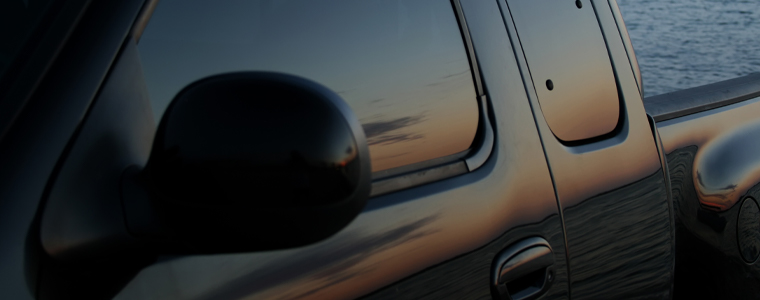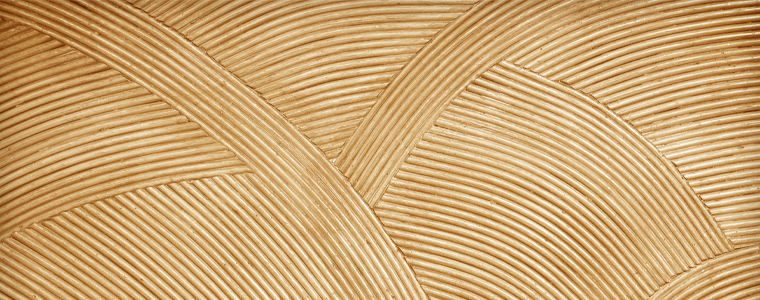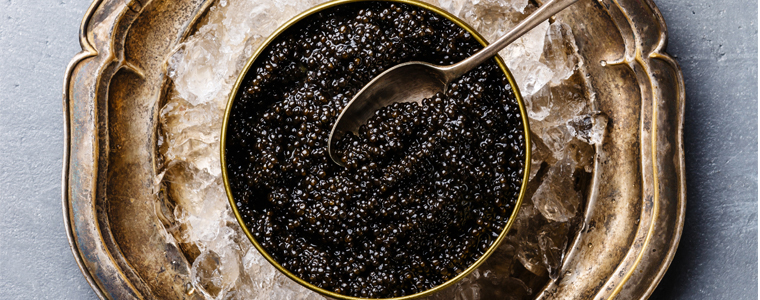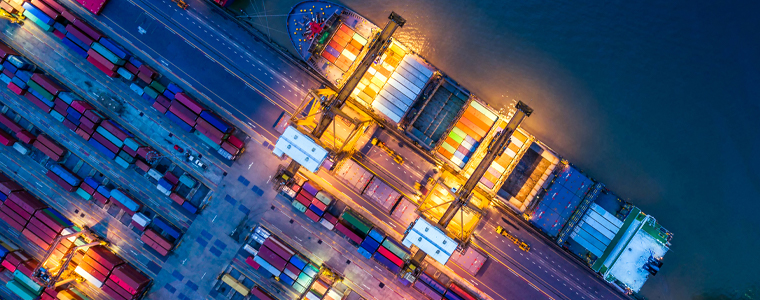When it comes to international relocations, we have a saying here at DeWitt Move: “It’s the little things that make a huge difference.”
Nowhere is this more evident than in the customs clearance process. Whether you’re coming from an international destination and clearing back into the U.S. or clearing local customs when moving abroad, getting the procedures and documentation right is crucial. If you fail to declare a restricted item or forget a crucial piece of paperwork—such as the inventory list for the wine you’re shipping—your container could be held up for weeks.
To give you a taste of the kinds of rules you might encounter during an international relocation, we talked to our experts. They gathered some of the most surprising customs rules from destinations around the globe to demonstrate just how precise you need to be when moving household items internationally.
Item #1: Cars with Tinted Glass

Country: United Arab Emirates
Status: Prohibited
If you’re planning on bringing a car with you to Dubai or another location within the United Arab Emirates, make sure there’s no tinting on the car’s windows. Otherwise, your car may be denied entry.
Additionally, the UAE only allows left-handed cars to be imported. If you’re coming from England, Australia or one of the other countries of the world that uses right-handed cars, you’ll have to leave yours at home.
Item #2: Cars and Motorcycles Not Shipped Under Diplomatic Status
Country: Thailand
Status: Steep duties
If you’re planning on bringing your car to Thailand and you’re not relocating under diplomatic orders, you might want to reconsider. The import duties on cars and motorcycles can be steep, and, if you’re not a diplomat, you likely won’t even be allowed to bring your motorcycle into the country.
Just check out these numbers:
• Duties on cars range from 213% to 308% of the imported value.
• Motorcycles are subject to 94% duties.
At the end of the day, it’s likely cheaper to buy a car once you arrive in the country, but make sure to talk to your moving company. They should be able to help you do the right calculations so you can make a smart financial decision for you international move.
Item #3: Wood & Bamboo Materials

Country: Australia
Status: Must be declared
Australia maintains strict biosecurity rules for both visitors and those moving to the country. In order to protect the people, native species and natural resources of the country, the government has stringent regulations designed to keep the country free of new pests and diseases.
Whether you’re bringing items made of wood, bamboo or similar material in your suitcase or packed into your container, these items must be declared, either at the airport when you arrive or on the shipment’s your inventory list. This includes common everyday items such as decorative wooden masks or wooden cabinets, which you might not think twice about if you’ve never visited Australia.
Wood and bamboo items may need to be inspected on arrival. If risks, such as potential infestation, are detected, then you may be required to:
1. Have the item treated at your cost.
2. Ship it back to your country of origin.
3. Allow the department to destroy it.
If you have any questions, talk to your moving company. You don’t want to find yourself having to make a tough decision about a family heirloom while you’re in the middle of an international relocation.
Item #4: New Furniture
Country: Barbados
Status: Steep duties
When importing household goods to many countries around the world, used items are often not subject to duties, while brand new items may end up costing you. For example, if you bring furniture into Barbados that’s sparkling new with the tags still on it, you may by looking at duties of up to 60% of the value of the furniture.iii (Ouch!)
If you have any concerns about any items you’ve purchased recently, make sure to mention it to your moving company ahead of time. They’ll help you prepare your shipment and documentation accordingly.
Item #5: Raw Cotton
Country: Egypt
Status: Frequently restricted
Often, countries will halt imports of materials in order to protect local markets. That’s been the case in Egypt over the last few years. When cotton prices have dropped—or there’s still plenty of Egyptian cotton yet to be sold—the country’s government has placed restrictions on importing raw cotton.iv
It’s rare to see raw cotton in a household goods shipment. However, one thing we’ve learned anything after nearly a century in business, is that it never pays to make assumptions about what our customers want to take with them during a relocation. So if you have a side hobby of spinning cotton and you plan to move to Egypt, talk to your mover before you pack it into your shipment.
Item #6: “Politically Subversive” Material
Country: China
Status: Prohibited
When you relocate to a new country, you’ll spend some time getting to know the local practices and traditions in order to get along with your new neighbors. Moving companies have the same responsibilities. We make it our business to understand the local import regulations in order to ensure an easy move into a new country.
That’s why, if you were moving to China, we’d make sure you knew not to import “politically subversive” material.v Now, as with many issues in customs, interpretation is often left to the customs officers who supervise your import. Our advice? Avoid even the appearance of violating this rule so you can enjoy a smooth transition to China.
One more tip for moving to China: If you happen to be sending goods to arrive at the port of Chengdu, make sure you’re not sending a billiard or pool table. They’re not allowed through that port of entry.vi
Item #7: Items Depicting Any Reference to Marijuana
Country: Cayman Islands
Status: Prohibited
There’s a stereotype out there about Jamaica, focused on the idea that the Caribbean nation is a marijuana smoker’s paradise. Still, others have extended that belief to the entire Caribbean, imagining it as a place where the police turn a blind eye to widespread use.
In most Caribbean nations, this couldn’t be farther from the truth. Marijuana remains illegal in many Caribbean countries and, in fact, the Cayman Islands have taken it one step further. The country restricts items depicting any reference to marijuana, So if you’re headed for the Caymans, leave any items referencing marijuana—even items like wall hangings bearing an illustration of the plant’s leaves—behind.
Item #8: Beluga Sturgeon Caviar

Country: United States
Status: Prohibited
If you’re spent time in Azerbaijan, Iran, Kazakhstan, Russia, Turkmenistan, Bulgaria, Georgia, Romania, Russia, Serbia & Montenegro, Turkey or Ukraine, and you’ve got a taste for beluga sturgeon caviar, get your fill while you’re abroad.
As of 2005, the U.S. Fish and Wildlife Service suspended trade in caviar originating from these countries. This essentially translates to a ban on import for international moves. If you plan on bringing back caviar from your time abroad, make sure you check the caviar regulations carefully to keep your shipment moving through U.S. customs quickly and easily.
Item #9: Chewing Gum, Chewing Tobacco and Imitation Tobacco Products
Country: Singapore
Status: Prohibited
When Singapore banned the manufacture, import and sale of chewing gum in 1992ix, the regulations made international news. However, since then, Singapore has begun to relax some of its rules. In 2004, the ban was revised to allow therapeutic, dental or nicotine chewing gum,x which can be bought from a doctor or registered pharmacist, as long as you provide your name and an ID.
So while it’s legal to consume chewing gum in Singapore, importing non-theraputic gum is not. If you’re headed for Singapore, leave it out of your shipment.
Item #10: Cereal
Country: Nigeria
Status: Prohibited
The president of Nigeria, Muhammadu Buhari, took office in 2015. Early in his tenure, he banned the import of many food products to Nigeria, including cereal, in order to incentivize local food production.xi While the restrictions on food imports have increased things like local rice production by as much as a ton per year, he’s faced a significant amount of criticism for his policies.
Whether or not President Buhari’s regulations will be beneficial to the long-term health of the Nigerian people and their economy remains to be seen.
However, if you’re planning an international move to Nigeria, resist the temptation to stockpile Cheerios and other food in your container. In addition to cereal, the International Association of Movers has also received reports that beer, mineral water and soft drinks are also prohibited from import.xii
Item #11: Walkie-Talkies
Country: Malaysia
Status: Prohibited
Walkie-talkies might seem innocent enough, especially if you have children who love to play games with them,
However, radio transmitters, citizen band radios, cordless telephones and walkie-talkies are all prohibited for import to Malaysia. That being said, you may be able to get an import permit to allow you to bring them in with your move, but make sure you check with your moving company to avoid any snags.
Item #12: Jet Skis

Country: British Virgin Islands
Status: Must be declared, and can’t be used
The British Virgin Islands, with their attractive tax incentives, has become the home to more than 400,000 companies. If you’ve seen the crystal clear water surrounding these islands, you might think a jet ski would be the perfect piece of equipment to tour this archipelago.
However, you’d hit a major snag: Jet skis are illegal to use in the BVI.
If you happen to, say, bring them in with you on your yacht, you’d need to declare them and promise that they won’t touch the water. However, if you’re moving to the BVI and thinking of including one in your container, we’d recommend against it. These islands are small, and you’ll want to start off on the right foot with the local customs officers, especially since you may encounter them frequently if you make regular trips to the nearby U.S. Virgin Islands.
Moving Internationally with Ease
When you’re relocating internationally, a company with experience, preferably in your destination country, will be one of your most valuable assets. Their experts can alert you to local customs regulations before problems arise. They can also help prepare both your shipment and your paperwork to pave the way for easy clearance through customs, helping you make an easy transition to your new home.
_____
Need help with your international relocation? DeWitt Move Worldwide completed our first international relocation in 1958. Since then, we’ve helped our customers make tens of thousands of moves abroad—and back to the United States. Have questions about customs issues for your destination? Get in touch with us, and we’d be happy to help you get the information you need to make a simple relocation to the country you’ll call “home.”
